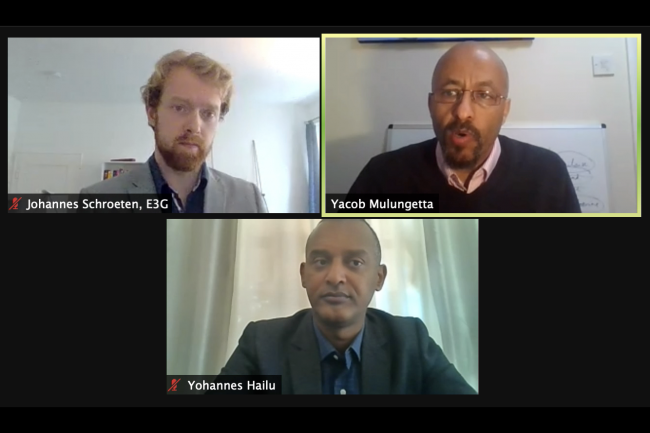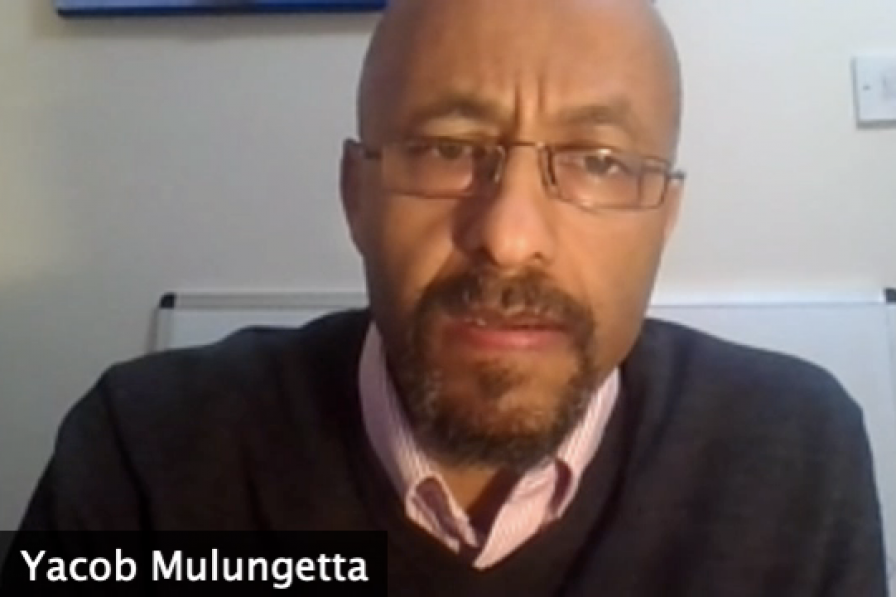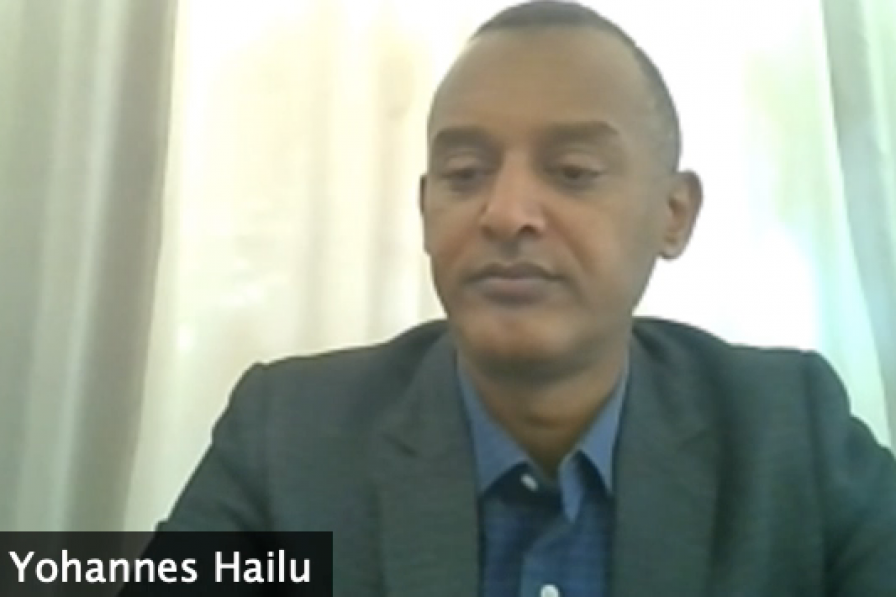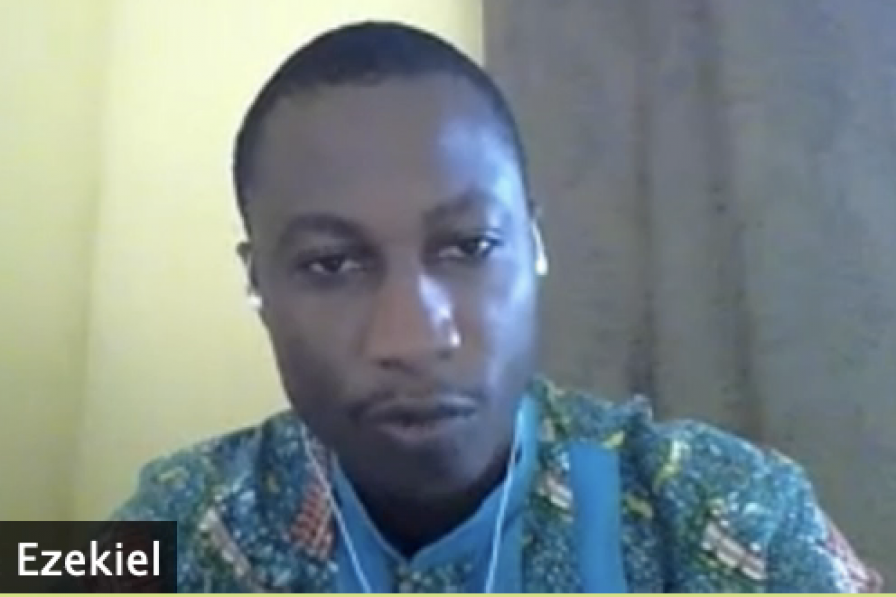A Just Energy Transition is Key to Delivering Climate Action in Africa
The event was organized by the Alliance of civil society organizations (CSOs) for Clean Energy Access (ACCESS Coalition). John Kioli, Chairman, Kenya Climate Change Working Group, moderated the session.
Yacob Mulugetta, University College London, said a just transition should: move towards renewable energy sources while minimizing negative impacts on employment and the environment; and be about people and communities. He said enabling policies and institutions are critical.
Thembinkosi Dlamini, Oxfam South Africa, said efforts to achieve an inclusive and efficient transition should focus on ensuring energy access at the community level through implementing mini-grid systems that are community-owned and operated. These, Dlamini said, will improve communities’ incomes and livelihoods, be affordable, and generate green jobs.
Yohannes Hailu, UN Economic Commission for Africa (UNECA), said to achieve a just transition, there must be: inclusivity; a competitive market environment; forward planning at all levels; and investment capital, which will require some form of partnership with the private sector.
Johannes Schroeten, Researcher, E3G, said planning for a just transition should look at the financial case for infrastructure in the long term, not just the short and medium terms.
Ezekiel Chibeze, Executive Coordinator, Strategic Youth Network for Development, Ghana, underscored vulnerable groups can be active participants throughout all key stages of a just transition. He called for an enabling environment to harness the creativeness and entrepreneurial nature of youth. Chibeze called for governments to invest in safety nets that will guarantee affordable access to and reliable provision of clean energy.
Jacqueline Kimeu, International Coordinator, ACCESS Coalition, said CSOs can play a role by implementing capacity-building programmes and providing access to microcredit facilities. She called for CSOs to ensure grassroots communities are represented in decision-making processes.
Maimuna Kabatesi, Country Engagement Officer, Hivos, said the COVID-19 pandemic has had adverse economic effects on Africa. She stated the response must consider the role of mini-grids, improving access to energy, and exploring decentralized energy access.
In ensuing discussion, participants addressed: safety nets for a just transition; involving women in research on energy efficiency and energy transition; ways to speed up a just transition; net exporters of fossil fuels’ survival without depending on fossil fuels; and the role of technology transfer.
In closing, panelists provided key takeaways from the session:
- Schroeten said Africa requires a unique response for a just transition, and public finance will be paramount;
- Mulugetta underscored the role of technology transfer and innovation;
- Dlamini called for decisive leadership that encourages technology development on the continent, improves local communities’ livelihoods, and is community-driven;
- Hailu urged establishing inclusive processes through planning investment approaches and ensuring regulation;
- Chibedzi advocated for public finance to provide safety nets for women, youth, and other vulnerable groups; and
- Maimuna said there must be a focus on those usually left behind.



